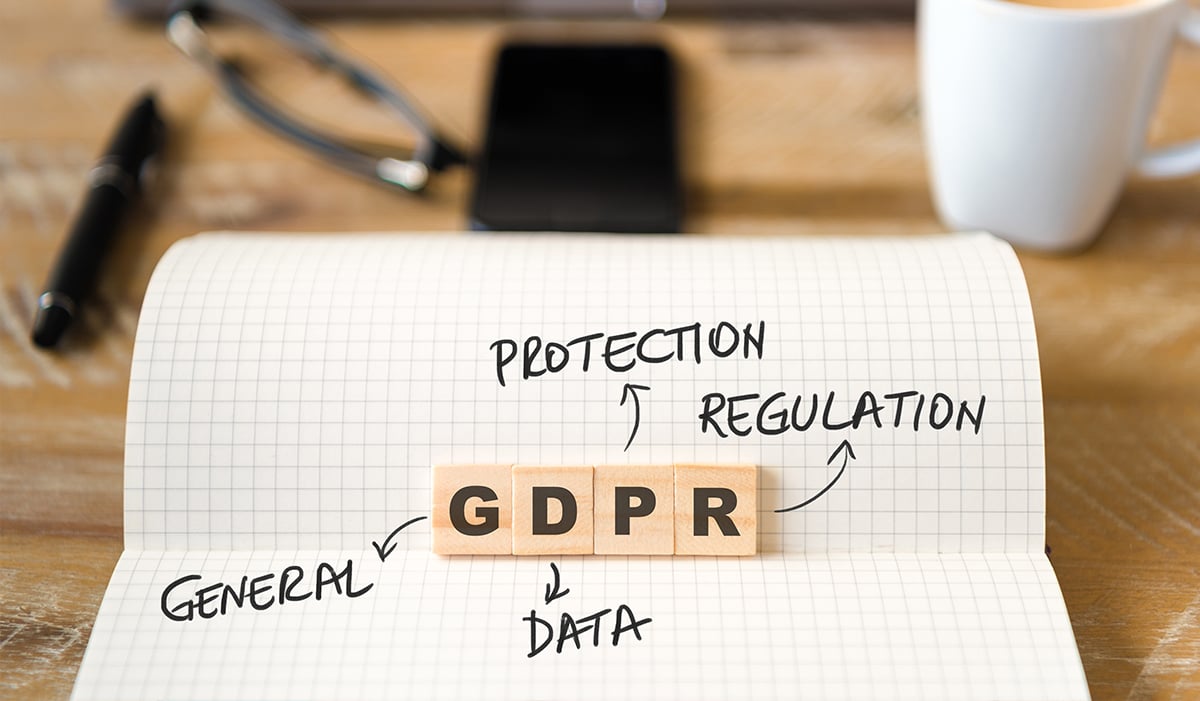User data privacy is a minefield amidst the ever-changing digital landscape. General Data Protection Regulation’s (GDPR) introduction in 2018 forced websites to grapple with new obligations concerning customer data consent and preferences.
Fast forward to today and GDPR UK’s influence is now supported by the Information Commissioner’s Office (ICO). Consent platforms like OneTrust have emerged to safeguard users’ data, ensuring they control how their personal information is tracked.
Then there’s the never-ending slew of privacy policies which outline the purpose and usage of cookies. Two principles underscore policies: data can’t be tracked or utilised until users grant explicit approval; and users can withdraw their consent at any time.

3rd party cookies have been at the heart of the digital privacy landscape for years. These small files are a powerful asset for marketers trying to understand user behaviour across multiple sites - they remember specific preferences, ranging from browsing habits to shopping baskets. Whereas 1st party cookies originate directly from your web domain, 3rd party cookies originate elsewhere and get used where a user accepted them elsewhere or where you allowed your digital solutions to pass them on or accept them.
While most providers and owners of web domains have good intentions in mind, the image of the 3rd party cookie is tarnished. The volume surrounding privacy concerns has reached fever pitch, to the point that third-party cookies are bagged up and about to be sent to the scrap heap in 2024. And whilst there’s plenty of time on paper to adjust your strategy, there’s no time like the present.
How did we get here?
Third-party cookies’ marketing value isn’t being called into question. Few tools are quite as effective at tracking users’ movements across the internet. But there’s a caveat. The movement of the use of 3rd party cookies across sites without explicit consent is an uncomfortable bedfellow with GDPR.
Cross-site tracking enables companies to build comprehensive user profiles, something which many consider invasive. And whilst the majority of third-party cookies are set with good intentions - such as attributing ads correctly and delivering relevant experiences - the potential to abuse the consent, the use of cookies and their associated information remains a red flag.
All of these issues have culminated in a generational shift in browsers’ way of working. Apple set the pace when it scrapped 3rd party cookies on Safari in 2020, with Google Chrome set to follow suit in 2024. But despite the industry hurtling towards the post-3rd party cookie era, we still don’t know the full ramifications for marketing platforms and campaigns.

However, this hasn’t stopped major players from beginning to develop new technologies to help those where attribution relies heavily on third-party cookies. The Google Sandbox API provides additional tools for both the Chrome browser and Android operating system (OS) to ensure platforms maintain functionality and tracking.
Apple’s iOS, having had three years to adapt to a cookieless landscape, now possesses some of the tightest data constrictions on the market. Introducing explicit user-specific tracking decisions around app usage has enabled Apple to challenge the level of information available to app providers. This has particularly impacted the highly-adopted social media apps that aim to provide, target and track advertising campaigns - Meta apps for Facebook and Instagram being the most obvious victims, where the collision of advertising, app based social media and analytics blocks have collided with a thunderous impact.
Appius’ conversations with Meta indicate that it will also be adopting a cookieless server-based approach. User data will be stored within a server connected to the website - which subsequently passes the data to Meta. This is similar to the outcomes of our discussions with Google, where existing server-side options will boast an extensive range of options with increasing levels of sophistication.
No reason to panic
With Google’s penchant for postponements (their cookie ban was originally slated to come into force in 2022), there’s technically no need to make any immediate changes to your current set-up.
The onus is on marketing platforms to deliver premium tracking services with sufficient tools so that they can continue to deliver the same - or similar - levels of insight, capabilities and tracking around their advertising and usage. Only when browsers and operating systems have demonstrated clear processes and settled on firm dates will you need to take action to evolve approaches, privacy strategies, consent mechanisms and GDPR compliance.
But that doesn’t mean you can’t get ahead of the curve. Advertising platforms are beginning to push the benefits of more complete data and new ways of tracking conversions. What’s more, the incentives for early adoption of cookieless solutions are becoming more evident and actually being offered directly by the platforms for early adopting brands.
If you have indirectly been reliant on 3rd party cookies this can be a watershed moment for your company to foster a better relationship with customers - both new and existing - based on a foundation of even greater trust. Putting privacy at the heart of your messaging enhances your reputation without jeopardising your ability to collect valuable customer insights.
Moving away from an over-reliance on cookies could also be an effective way to avoid financial penalties. Meta was handed a €1.2bn fine earlier this year for mishandling user information - a sum that would cripple most companies. Ensuring that you stay on the right side of privacy regulations like GDPR should be front-of-mind for any marketer worth their salt.

Stripping this back to the basics, perhaps the most obvious benefit of a departure from cookies would be testing the increased value of the new approaches with a pilot or phased implementation. Embracing a gradual strategy migration over an extended period - with appropriate time set aside for the agreement of changes - avoids disruption of proven paid advertising and tracking when the enforced ban on cookies comes into play. Nobody wants a last minute scrap with their compliance, data and privacy teams, which results in unplanned pauses to paid and social campaigns - or blanket server approaches that stop all tracking while you work through it.
Does your company want to kickstart its post-3rd party cookie marketing strategy? Want to learn more about the benefits of early adoption of alternative data collection methods? Appius’ experience in overseeing digital transformations and direct lines of communication to Google, Meta and others can ensure that you maintain premium performance whilst shifting your strategy. Reach out to us using our contact form to see how we can support you in the post-3rd party cookie landscape.





SUBMIT YOUR COMMENT